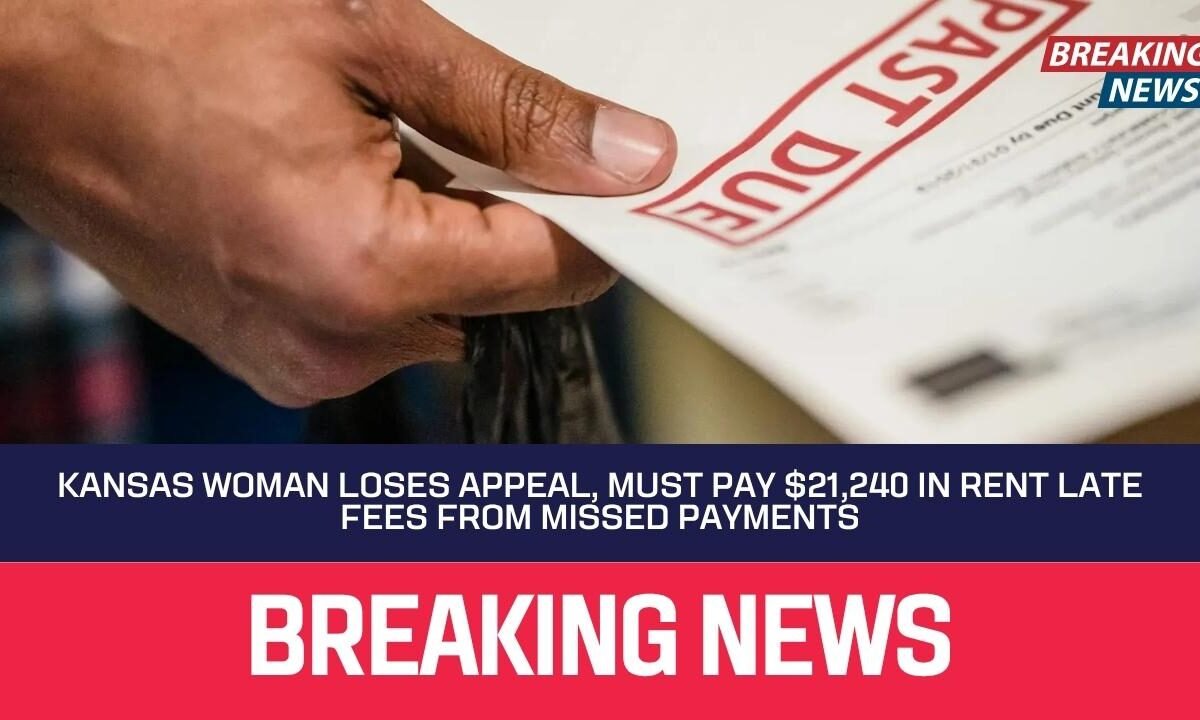In a recent court case that grabbed attention across Kansas, a woman named Sherri Foster has been ordered by the Kansas Supreme Court to pay more than $21,000 in late fees for unpaid rent. The case, which started during the COVID-19 pandemic, has raised many questions about fairness, renter protection, and late fee policies. Let’s break down what happened in simple terms so that everyone can understand the story and its importance.
What Happened with the Rent?
In November 2018, Sherri Foster moved into a house in Prairie Village, Kansas. She agreed to pay $1,900 per month in rent to a landlord named John Schutt. At the same time, she also worked for him, helping to renovate other rental homes.
The rental contract said that if rent was late, $20 per day would be charged until it was paid. This late fee rule is what ended up becoming the center of the court battle.
Missed Payments During 2020
In early 2020, Foster failed to pay rent for three months. She and Schutt worked out a deal to get caught up by June 2020. However, she missed another three months of rent later that year. This led to a legal case being filed in Johnson County District Court.
A Long Delay in Court
Normally, a landlord-tenant dispute goes to court quickly, often within 14 days. But due to delays, probably made worse by the pandemic and other issues, the case didn’t go to trial until March 2, 2023, even though it started in September 2020.
By the time the court made its decision, the late fees had added up. Based on $20 per day, for 1,062 days, the total late fees came to $21,240, plus $5,700 in unpaid rent.
A Small Win for Foster
Interestingly, Foster’s landlord also owed her $545 for unpaid work she had done on his properties. Foster’s lawyer, Eric Kraft, thought that the $21,000 in late fees was unfair, or in legal terms, “unconscionable.” That means the contract is so one-sided or harsh that it goes against what’s right.
Appeals Court Lowers the Fees
The case went to the Kansas Court of Appeals, where the judges agreed with Foster. They said the late fees were too high and lowered them to $1,700, which only covered the time between the missed payments and the start of the court case.
Supreme Court Changes Everything
But that decision didn’t last. Landlord John Schutt took the case to the Kansas Supreme Court. While the justices asked tough questions about the fairness of charging late fees over such a long period, they unanimously ruled in favor of Schutt.
They said that Foster’s attorney didn’t officially raise the issue of “unconscionability” in the right way during the trial. Because of that, the Court of Appeals should not have lowered the late fees.
So now, the original judgment stands: Foster owes $21,240 in late fees, in addition to the unpaid rent.
Why This Case Matters
This case raises bigger questions:
- Should late fees continue adding up even if the court takes years to hear the case?
- Is it fair to make tenants pay so much, especially during hard times like the COVID-19 pandemic?
- Should renter protection laws be improved?
Many people believe that this decision hurts renters, especially those who are already struggling financially.
The story of Sherri Foster and her $21,000 late fee shows how important it is to understand your rental agreement. It also shows how legal wording and court procedures can change the outcome of a case, even when things seem unfair. This court ruling reminds us that laws around rent, late fees, and tenant rights need to be clearly written and better understood—not just by lawyers, but by everyone.




